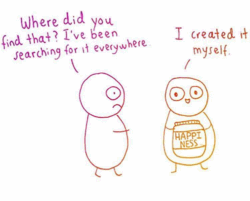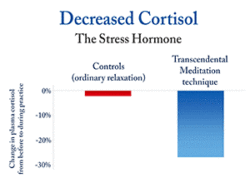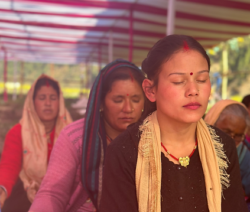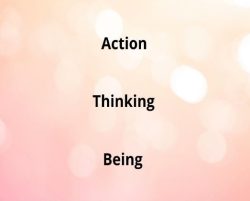August 2024
Dear Friend,
The golden days of August stretch out ahead of us, allowing us to linger for a while more in Summertime pleasures. Meanwhile, certified TM teachers have been busy promoting well-being in communities of women around the world. Read on….
- Last month’s blog written by women for women
- Articles
- New Study Shows TM Empowers Impoverished Ugandan Female Youth
- Monthly Gandharva Veda music concerts
- 20,000 Indian women learn TM in remote villages
- Q&A: On Enriching Friendships
- What women say: Now I love everyone

If you haven’t read our July blog posts, the links are below. You can also visit our blog homepage at any time to read articles we’ve posted in the past, covering topics as diverse as Is Marriage a Path to Happiness from 2014 and Trying to Be Mindful is Not the Path to Mindfulness from 2019.
Retirement
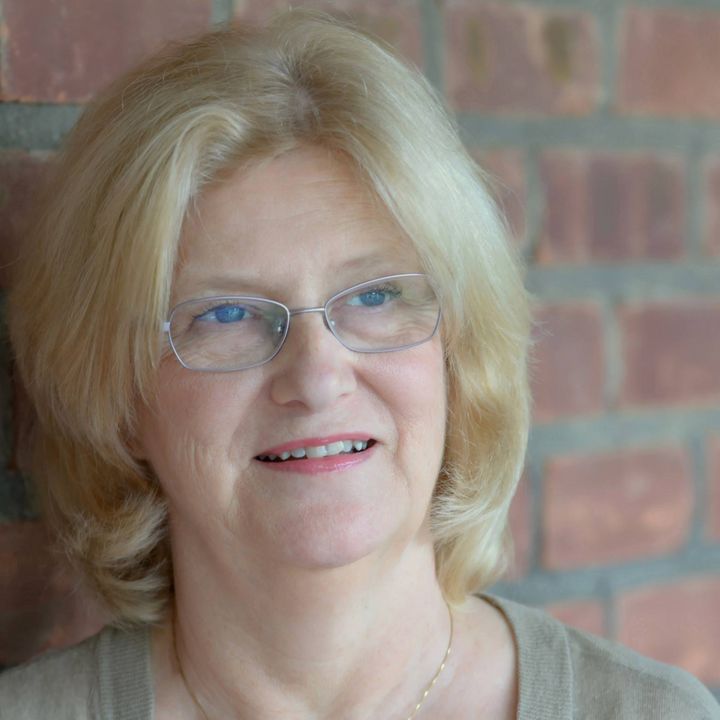
The ‘Golden Years’ is an expression often used to describe retirement. Why? Well, it is that period of life filled with one of the most cherished and sought after resources available to humankind—time.
In retirement, you have time to do all the things you ever wanted to do. You can travel; go on cruises and bus tours of interesting places; take courses on art, photography, current events, whatever appeals to you; read all the latest and greatest books; learn new languages; go to museums, theaters, concerts. You can do whatever you want to do that finances allow. I am going to suggest something you may never have thought of that can ensure an enriched retirement.
Is the World “Awake?”

Have you heard of panpsychism? It sounds mysterious or a little on the ugga bugga side, but, in fact, panpsychism is simply the view that all things have consciousness as their essential nature. The word “panpsychism” was coined by Francesco Patrizi, an Italian philosopher in the 16th century. The word itself is derived from the Greek: pan meaning all and psychic meaning soul or mind.

The effect of TM on self-esteem, self-efficacy, and gratitude: empowering female youth in Uganda’s urban slums.

Social tensions, violence, and the AIDS epidemic in Uganda have resulted in the largest portion of the population being its youth. However, more than half of Uganda’s 17 million children under the age of 18 live in slum areas.
A groundbreaking peer-reviewed study published July 9th in Health Care for Women International reveals the transformative power of the Transcendental Meditation (TM) technique among young women living in Kampala’s urban slums.
The researchers—Leslee Goldstein, Andra Marie Smith, Daniela Romagnoli, and Elissa Katergi—said that they chose to study females aged 13-26 “because the stress of dealing with the challenges they face can take its toll, resulting in low self-esteem, tiredness and low energy, and inability to cope.” The adolescent girls and young women living in Kampala face “economic instability, food and shelter insecurity, limited access to education, lack of employment, gender disparities, and domestic and community violence.”
The study illustrates a “Theory of Empowerment from Within”: the role of consciousness in building self-esteem—a crucial factor in empowerment.
This peer-reviewed study of 130 participants found that TM practice increased the at-risk Kampala female youth’s self-esteem, self-efficacy, and gratitude; TM decreased tiredness, worry, and excessive alcohol use. The TM practice improved mental and physical health as well as relationships with family and community members.
The authors concluded that TM allows these female youth to better cope with the challenges they face and gives them a greater appreciation of both their ability to engage in and impact the world around them. This shift starts with empowerment from within.
“I have improved in health and mentally, and even other people notice the change in me. After meditating I feel free, and my ability to do work has increased. I have improved in class performance and my relationships with others have also improved. I can control myself better now.” (NS, age 16)
Gandharva Veda Concerts

“Thinking more and more what we can do from this field of transcendental consciousness to bring world peace…I found there is yet another field we can promote—the field of Gandharva Veda.” Maharishi
Everyone is welcome to join us for a free Gandharva Veda Concert every month on or around the full moon
Gandharva music is a style of music that is formal, composed, and ceremonial. It is also known as Vedic music and is said to match the natural rhythms that govern evolution. Gandharva Veda music is the eternal music of nature—the rhythms and melodies of nature expressed as music. If you could hear the changing frequencies present at the first awakening of the dawn, in the dynamism of midday, or in the deep silence of midnight, you would be hearing the frequencies of Gandharva Veda music. These sublime melodies—the pure and simple coherent flow of sound—neutralize stress and disharmony, and gently restore biological rhythms by attuning the physiology to the cycles of nature.
21,000 Indian Women Learn TM in Remote Villages
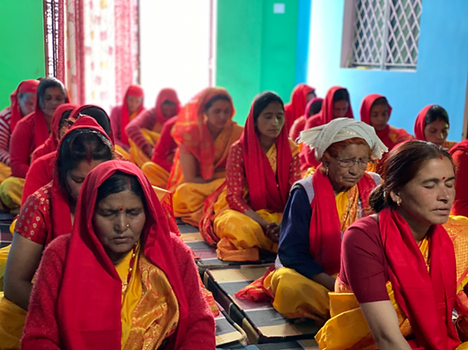
When we think of the effects of the Transcendental Meditation technique, we may think of reduced stress for busy western professionals. But the same benefits are seen around the world in many settings. One such project, reaching thousands of women, started just over two years ago in the Himalayas.
The Himalayas are a mountain range in Asia, separating the plains of the Indian subcontinent from the Tibetan Plateau. The range has some of the Earth’s highest peaks, with more than 100 peaks exceeding elevations of 7,200 meters above sea level. It is one of the most challenging terrains on earth, filled with many beautiful, kind people who are living, in many cases, very difficult lives.
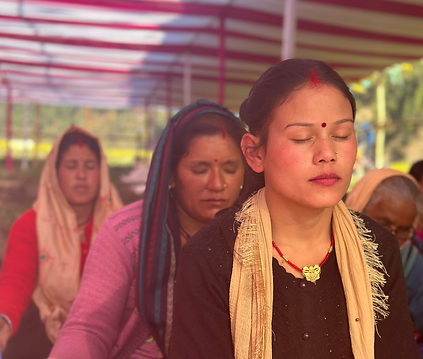
The goal of the Himalayan Devis Project is for the women in the Himalayas to unfold their unbounded capacity to improve not only their lives, but their families, communities, and even the world. The project, led by Dr. Alison Plaut, Dr. Jose Luis Alvarez, and a team of TM teachers, has reached more than 21,000 women in over 700 villages across the state of Uttarrakhand in the Himalayan region.
Local certified TM teachers travel every day from their homes to these mountain villages in order to reach as many women as possible. By teaching the TM technique for complete self-development, and also promoting economic growth in each community through organic Vedic agriculture, all aspects of quality of life are addressed.
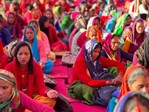
Although local officials had warned that these women tend to stay in their homes and not many would enroll, already more than 21,000 have embraced the TM technique and all aspects of the program. It’s a natural extension of their lives, giving them great inner strength and clarity of purpose. Benefits widely reported include increased energy, efficiency in work, more happiness and peace, better health (fewer migraines, better sleep, less pain), and improved relationships.
To learn more about the project and to contribute: https://www.himalayan-devis.com/donate

Q: How can I enrich my friendships?

A: The most rewarding friendships are based on growing expansiveness or fullness of each participant. Without an effective way of reducing stress and expanding our vision, our friendships are often doomed to hang on circumstances, moods, fear and selfishness. If everyone is busy looking for what they can get out of the relationship, nobody gives or receives.
However, even if one wants to give, one can give from only whatever one has to give. If one experiences oneself as dependent, frightened, anxious, unfulfilled, and not open to the infinity of the inner Self, one has only finite values to give. With boundaries in our awareness, thinking and feeling, nothing much can be given.
Deep within oneself, one is unbounded and unlimited (even if one is not aware of that status) so we simply open our attention to that inner infinite value and then our friendships grow less restricted as our hearts swell naturally in fullness.We all have the ability to transcend our boundaries, expand our awareness, and realize the infinity of our nature through the TM practice, allowing us to be and give maximum. And therefore, when anyone wants to meet on the level of giving, one can dive within during the TM technique, promoting the development of heart and mind. Giving will flow and friendship will be authentic and fulfilling.

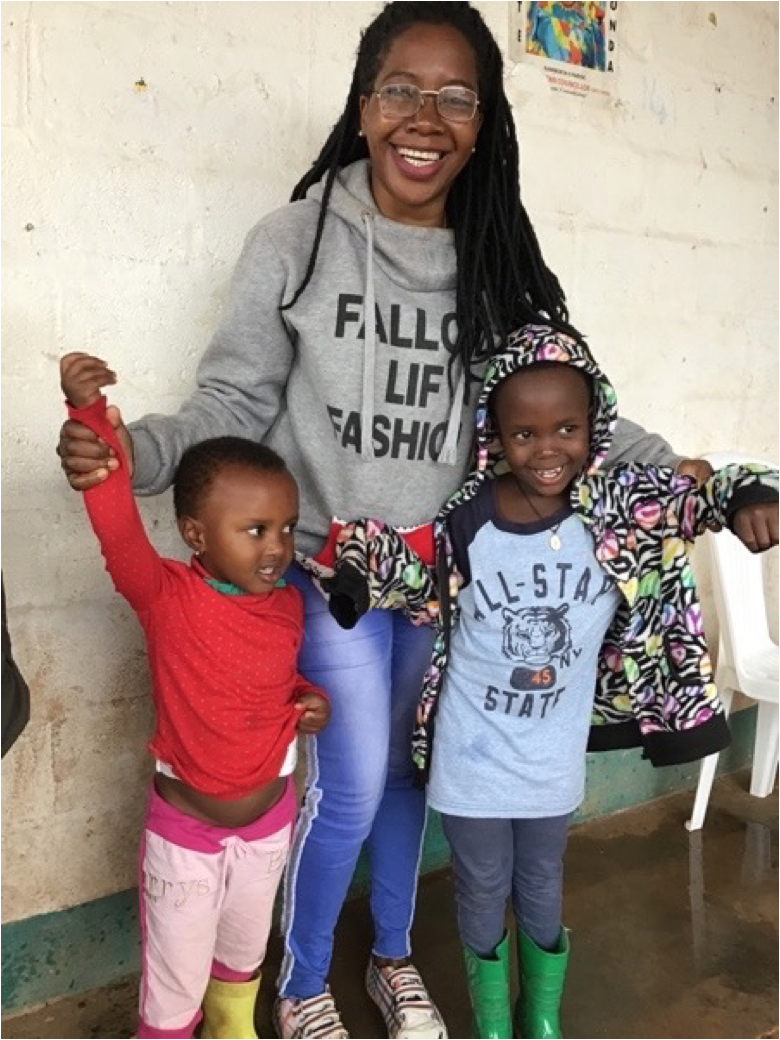
“Before learning TM, my relationship with my family members was not much as it is these days after learning TM. Now I love everyone, and I feel happiness inside me. When I’m with them, especially children, you find me carrying them and playing with them, which was not there before.”
— NJP, age 24, with her two young siblings, Kampala Uganda
Editor’s note: We’d love to hear your comments on the benefits you’ve received from the TM practice. And, with your permission, we’ll publish them here for other women to enjoy. Send your comment to info@tm-women.org







